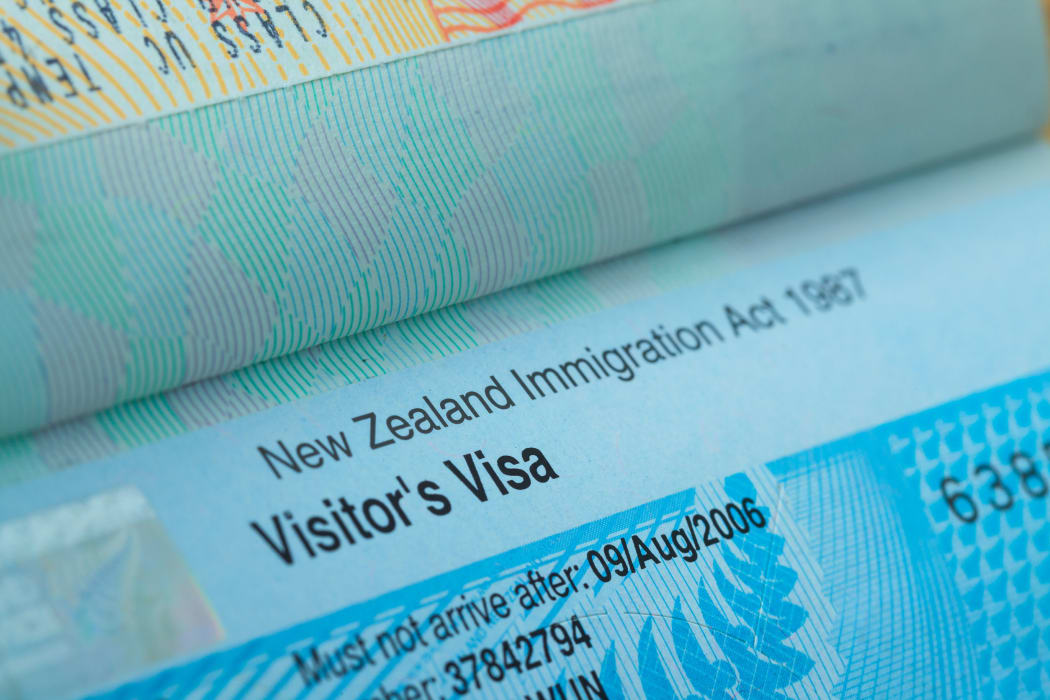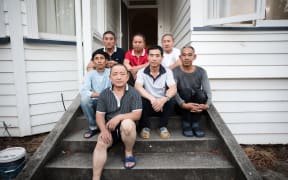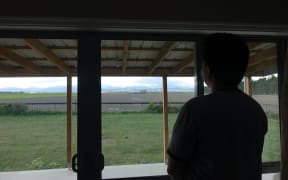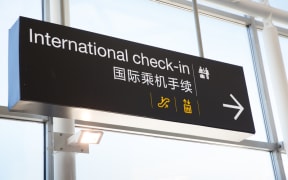Immigration New Zealand says restructuring of its offices and the peak summer volumes of visas are to blame for frustrating delays being suffered by tourists, students and workers.

Passport stamp visa for travel concept background, New Zealand. Photo: 123RF
One immigration lawyer says companies desperate for staff are having to wait up to four months for a work visa. Applicants say they are hitting a brick wall when they try to get updates from staff.
One woman, whose son is returning to live in New Zealand with his overseas wife and child, said she got an insight into how hard immigration processes were for applicants when she looked into what visa they would need.
"I was on the phone for about two hours, I never got a reply," she said. "I was told eventually they've closed all of the immigration offices in New Zealand. If you close all the offices down you need to have sufficient telephone operators to pick up a telephone and find out what the person is ringing about."
Social media platforms abound with discussions about visa delays and people not being able to find out the progress of applications.
One person posted about four unreturned or unanswered calls made from abroad. Another had to cancel a paid-for trip and go to Tasmania instead because of visa delays.
In the last three months, it has taken more than a month for Immigration New Zealand (INZ) to process 90 percent of visitor visa applications. For students, that goes up to 54 days and months. Most residence visas take 10 months.
For essential skills work visas, it takes three months. INZ said five years ago work visas - including other categories and under different policies - were processed in 29 days in 88 percent of cases.
An immigration lawyer, Matt Robson, said businesses, and lawyers and immigration advisor groups had been clamouring for action to tackle the delays.
One client had a residence application which took three years, and while there were difficulties in that case, he found reaching a case officer hard and then found the officer had been moved to prioritise work visas.
"But then I went to my work visa registry and these were also inordinate delays," he said. "I'm told that work visas are a priority because of the economic value to the country but I found that many of the applications were not even getting a case manager, let alone being processed for three to four months after submission.
"People are putting in applications for [a visitor's visa] missing the wedding they are coming to or some other important personal events because the applications are delayed.
"A recent student visa I did which I got prompt action once I complained quite stridently, I was told that the course started on the first of April, put in at the end of February, a very simple application, that there would be an assessment some time towards the end of April. So they wouldn't get a case officer until a month after the course started."
Immigration staff were helpful and hardworking, but under pressure, he said.
"They just seem to be under extraordinary pressure," he added. "They try and help but generally it's a stone wall, 'that's the system we can't help, it's been modernised'."
Businesses were desperate, finding it hard to recruit staff here or overseas, and then having long waits before an overseas worker was allowed to start, he said.
Online applications can go anywhere in the world, said Mr Robson. He knew of one which was filed in Vietnam that had gone to Beijing and then Mumbai, and applications submitted in New Zealand were also now being processed overseas.
He called for a review to address systemic problems.
He pointed to recent cases highlighted in the media, and said publicity should not be the way that some immigrants get prioritised over others.
INZ 'puts wrong decisions right'
Immigration New Zealand (INZ) assistant general manager, Peter Elms, denied they got priority, but said they always sought to rectify mistakes.
"Sometimes we wish that people would come to immigration first so they give us an opportunity to put those matters right if there are issues with the decision," he said.
"But sometimes when they go to the media those cases get aired in the media and actually if the decisions are wrong we will put those decisions right, so we make no bones about that."
INZ said volumes of applications were increasing and peak between October and March, predominantly because of student and visitor visas.
Restructuring has included adding and training new staff, INZ says
Mr Elms said restructuring of its offices had led to higher levels of recruitment and training needs, which had impacted on processing times.
"In October to March, it's the traditional peak period for students and visitors and that happens every year," he said. "So while we plan for those peak periods and we process the vast majority of visa applications quickly, it does mean that for some applicants they have to wait a little bit longer than they would do normally.
"It's a combination of the volumes but also over the last 13 months Immigration has been changing its operating model.
"We've gone through a process of transferring processing from 12 of our office locations overseas into New Zealand.
"We've recruited new staff over the last 13 months and it's a combination of recruiting those staff and bringing them up to speed and as they get more experience then clearly they become more productive and that will mean that timeliness [improves]."
The changes aimed to boost efficiency and consistency and were not about reducing the headcount, he added.
He said the average waiting time on the immigration phone line was 11 minutes. That includes the number of people who request a callback, or hang up. In an unscientific lunchtime call, RNZ recorded a wait of almost three hours.






